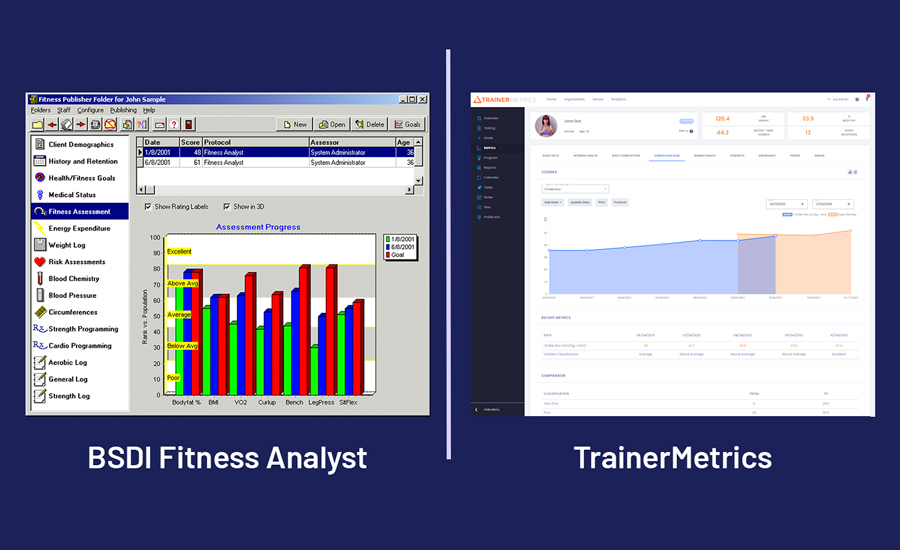3 Factors Every Fitness Business Should Know About HIPAA

Most fitness business owners assume HIPAA compliance is only for hospitals and medical clinics. This assumption could put your personal training operation at serious legal and financial risk. Here’s what every multi-location gym and fitness organization needs to know about protecting client health information.
What is HIPAA and Why Fitness Businesses Should Care
The Health Insurance Portability and Accountability Act (HIPAA) protects individual health information and establishes strict guidelines for handling Protected Health Information (PHI). PHI includes any health-related data that can identify a specific person – from basic contact information to detailed fitness assessments and biometric measurements.
Key Definition: PHI encompasses client names, email addresses, phone numbers, photographs, body composition data, fitness test results, and medical history collected during training sessions.
For fitness organizations, HIPAA compliance becomes critical when you:
- Partner with healthcare providers for client referrals
- Offer corporate wellness programs
- Store detailed health assessments and measurements
- Share client data with insurance companies or medical professionals
Factor 1: Client Privacy Protection Standards
The Current Reality in Most Fitness Operations
Walk into any gym and you’ll likely find client measurement cards stored in unlocked filing cabinets, assessment data scattered across paper forms, and health information accessible to any staff member. This approach creates significant privacy vulnerabilities that could damage client trust and expose your business to liability.
Modern clients expect enterprise-grade data protection. They assume their sensitive health information receives the same security standards as their banking or medical records.
Digital Security Requirements
Professional fitness operations require secure, cloud-based data management systems that:
- Encrypt all client health information during storage and transmission
- Limit data access to authorized personnel only
- Maintain detailed audit trails of who accessed what information
- Automatically backup data across multiple secure servers
- Enable clients to control their own data privacy settings
Best Practice: Implement a comprehensive personal training management platform that centralizes all client health data in a HIPAA-compliant environment, eliminating scattered paper records and improving operational efficiency.
Factor 2: Business Partnership Compliance Requirements
Healthcare Provider Collaborations
As the fitness industry increasingly integrates with healthcare through programs like ACSM’s Exercise is Medicine, partnerships with medical professionals are becoming standard practice. These collaborations automatically involve PHI transfer, making HIPAA compliance essential.
Common Partnership Scenarios Requiring Compliance:
- Physical therapy referrals to personal trainers
- Physician-recommended fitness programs
- Chronic disease management partnerships
- Post-rehabilitation training programs
- Corporate wellness initiatives
Corporate Wellness Program Demands
Insurance companies and corporate wellness programs actively seek HIPAA-compliant fitness vendors. Non-compliant operations are automatically excluded from lucrative corporate contracts that could significantly increase revenue.
Revenue Impact: Multi-location fitness organizations report that HIPAA compliance opens access to corporate wellness contracts worth 15-30% additional annual revenue.
Factor 3: Technology Partner Selection Criteria
Enterprise-Grade Security Requirements
HIPAA compliance involves complex technical and administrative safeguards that most fitness businesses cannot implement independently. The solution is partnering with technology providers who specialize in compliant data management.
Essential Security Features Your Platform Must Provide:
- Geographic Server Redundancy: Multiple data centers across different regions prevent disaster-related data loss
- Automated Backup Systems: Continuous data protection with instant recovery capabilities
- Role-Based Access Controls: Granular permissions ensuring staff only access necessary client information
- Audit Trail Documentation: Complete logs of all data access and modifications
- Data Encryption: Military-grade protection for data at rest and in transit
Operational Efficiency Benefits
Beyond compliance, the right technology partner streamlines your entire personal training operation. Look for platforms that combine HIPAA compliance with:
- Standardized assessment protocols across all locations
- Automated progress tracking and reporting
- Integrated scheduling and client communication
- Business intelligence dashboards for management oversight
How TrainerMetrics Ensures HIPAA Compliance
TrainerMetrics provides enterprise-grade data security that meets HIPAA requirements while optimizing personal training operations for multi-location fitness organizations.
Our Compliance Framework Includes:
- Bank-level data encryption protecting all client health information
- Secure cloud infrastructure with 99.9% uptime guarantee
- Role-based access controls tailored to your organizational structure
- Comprehensive audit trails for regulatory documentation
- Automated data backup across multiple geographic locations
Operational Advantages: Our platform eliminates paper-based health records, standardizes assessment protocols across locations, and provides managers with real-time visibility into compliance status – helping you protect client privacy while increasing personal training revenue.
Frequently Asked Questions
Q: Does HIPAA apply to independent personal trainers? A: It depends on your client relationships and partnerships. If you receive referrals from healthcare providers or store detailed health assessments, HIPAA compliance becomes necessary.
Q: What happens if my fitness business experiences a data breach? A: HIPAA violations can result in fines ranging from $137 to $2.07 million per incident, plus potential civil lawsuits from affected clients. Prevention through compliant systems is far more cost-effective than post-breach remediation.
Q: How does HIPAA compliance impact daily training operations? A: With the right technology platform, compliance actually improves operations by centralizing client data, standardizing assessment protocols, and providing better progress tracking capabilities.
Next Steps: Protecting Your Business and Clients
HIPAA compliance protects both your clients’ privacy and your business’s reputation while opening access to lucrative healthcare partnerships and corporate wellness contracts.
Immediate Actions to Take:
- Audit Current Data Practices: Identify where client health information is stored and who has access
- Evaluate Technology Partners: Ensure your personal training management platform meets HIPAA security requirements
- Staff Training Implementation: Educate your team on proper PHI handling procedures
- Partnership Opportunities: Explore healthcare collaborations that require compliant data management
Ready to implement HIPAA-compliant personal training operations? Schedule a demo to see how TrainerMetrics protects client data while streamlining multi-location fitness operations.
Last updated: 9/9/2025


